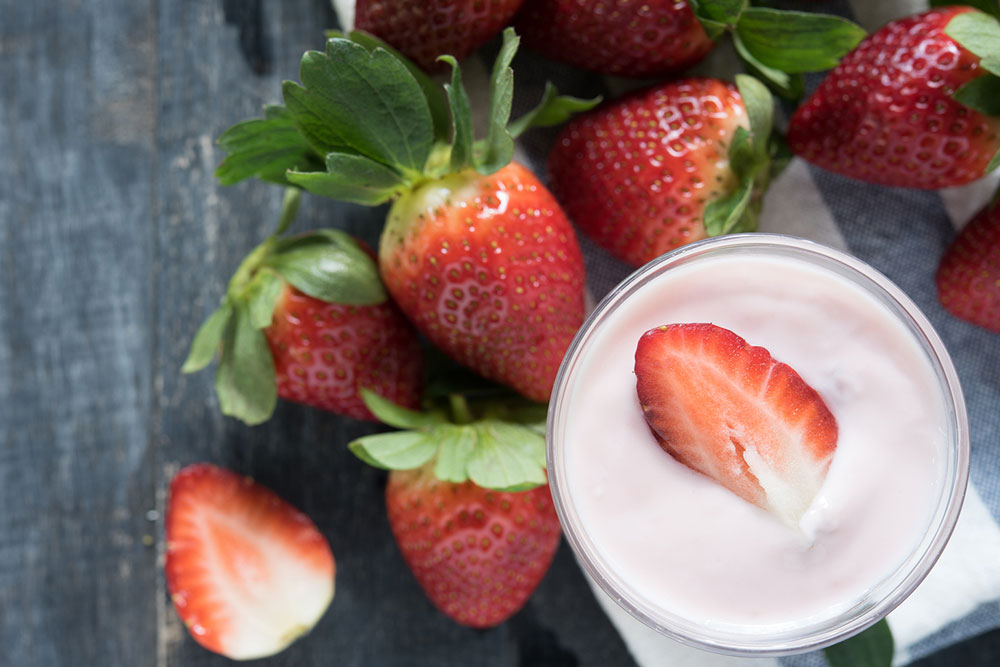
Top foods that improve gut health
The gut is host to colonies of microorganisms that live in the intestines, called the microbiome. Many of these microbes support healthy bodily functions, improve mental and physical health, and reduce the risk of diabetes, Inflammatory Bowel Disease (IBD), and psoriatic arthritis. Upsetting this microbiome can result in stomach issues, sleep disturbances, fatigue, skin irritation, compromised immune function, and other problems. Fortunately, eating certain foods rich in probiotics and prebiotics can considerably improve gut health.
Probiotics
Probiotics are good, live bacteria that thrive in the intestines. These are abundantly found in several fermented foods that can be prepared at home or easily available at the grocery store.
- Greek yogurt
Plain Greek yogurt is an excellent source of protein and probiotics, which help improve gut health over time. It is prepared by fermenting milk and straining the whey, i.e., the liquid part, giving it a thick, creamy consistency. Have it as it is, add it to a smoothie, or serve it with some berries for a delicious and healthy snack. - Kefir
Those who like dairy-based drinks can try kefir. According to some sources, this probiotic beverage has more probiotics and protein than regular yogurt and can help improve gut health by reducing inflammation. It may also help reduce the risk of cardiovascular disease, making it an excellent addition to one’s meal plan. Like Greek yogurt, one can blend it into smoothies, add it to a parfait, or consume it as is. - Kimchi
Those who can’t give up spicy foods must try kimchi as a probiotic. It is a popular Korean side dish made by fermenting cabbage, spices, and herbs. Kimchi helps in multiple ways—it improves gut health and increases one’s intake of cruciferous vegetables. - Sauerkraut
Individuals who prefer savory foods can also opt for sauerkraut, a delicious fermented cabbage dish. To get the best probiotics in this dish, look for refrigerated options at the grocery store with active live cultures, or prepare some at home! - Kombucha
Swap out those sugary sodas at mealtime with a glass of probiotic kombucha. This fizzy, fermented tea beverage is good for gut health and may even help reduce the risk of high cholesterol and type 2 diabetes. - Tempeh
Alternatively, one can also opt for tempeh, a dish that promises the benefits of both probiotics and prebiotics. One can easily incorporate this fermented soybean product into soups, curries, stir-fries, kebabs, and sandwiches.
Prebiotics
The good bacteria, which are the probiotics, in the gut need food to survive. This food comes from prebiotics, fibers that travel to the large intestine. There are many popular prebiotic choices to add to one’s meal plan to improve gut health and overall health.
- Oats
Oats are loaded with fiber, making them an excellent source of prebiotics. They are a popular breakfast choice and are preferred by many as a source of complex carbohydrates, protein, and fiber. For maximum benefits, avoid varieties with added sugars when buying oats. Instead, look for plain instant oatmeal or steel-cut oats. - Artichokes
Artichokes contain a fiber called inulin that works well as a prebiotic. They can also help improve bone health, protect the brain, and regulate blood pressure. Besides, one can consume artichokes raw or cooked, serve them alongside proteins, or turn them into a dip to enjoy as a delicious snack, making them a versatile ingredient to cook with. - Garlic
Garlic is an herb with many prebiotic, antibacterial, and antiviral properties. As a result, it works wonders for the gut microbiome and improves immune function. One can consume it in several ways, including adding it to soups, broths, traybakes, dips, breads, curries, and more. - Dragon fruit
Dragon fruits are loaded with fiber, making them an excellent source of prebiotics. The fiber content helps reduce the risk of constipation by ensuring a smooth and healthy bowel movement. Dragon fruits can be enjoyed in their raw form, with a bowl of granola, or blended into a smoothie. - Mushroom
The prebiotic properties of the humble mushroom have remained a secret for far too long. Not only do they provide food for probiotics, but they may also help regulate blood sugar levels and reduce the risk of stomach issues. - Soybeans
Those who eat plant-based foods often turn to soybeans for protein. These beans also contain a healthy amount of fiber, which makes them act as prebiotics in the gut. Soybeans and their byproducts, such as tofu, tempeh, or soy milk, can be added to soups, stews, and chilis for a gut-healthy meal.
Tips to improve gut health
- Limit the intake of extremely spicy foods, as these can trigger heartburn.
- Avoid fatty foods such as chips, burgers, and deli meats, as they are more difficult to digest and may increase the risk of stomach issues.
- Drink ample amounts of water to ease food passing through the digestive system.
- Eat high-fiber foods like whole grains, raw fruits, and vegetables to prevent constipation.
- Practice relaxation strategies such as yoga, meditation, and laughing to keep stress levels under control. Move a lot and spend time with loved ones.
- Get at least seven to eight hours of uninterrupted sleep every night.
- Eat food slowly to give it a chance to digest properly. This can help reduce many stomach disturbances.





